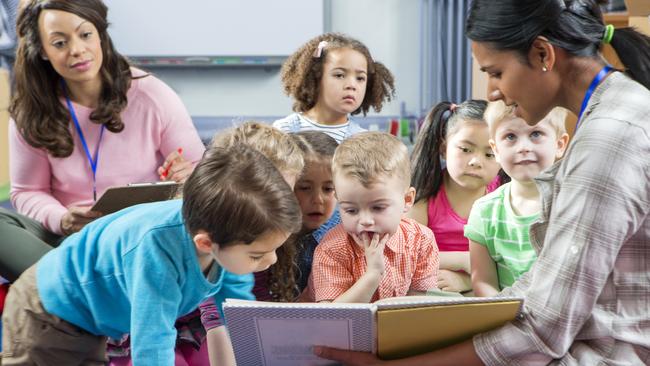South Australia leading the way in providing the best start for young children
All you need to know about the Royal Commission into Early Childhood Education and Care

SA News
Don't miss out on the headlines from SA News. Followed categories will be added to My News.
What is the Royal Commission into Early Childhood Education and Care?
We know how important the early years are to children’s brain development, with 90 per cent happening before a child turns five years of age.
The Royal Commission into Early Childhood Education and Care was established in 2022 to investigate how families are supported in the first 1000 days of a child’s life, how universal preschool programs can be delivered for three-and four-year-olds, and how families can have access to out-of-school-hours care at preschool and primary school.
Led by the Hon Julia Gillard AC, the Royal Commission delivered its findings and 43 recommendations to the State Government in August 2023.
The State Government is taking action on all the recommendations of the Royal Commission. In doing this, South Australia will be a national leader in early childhood education and care.
It includes setting an ambitious 20-year goal to reduce the number of children starting school with developmental vulnerability, becoming the first Australian state to offer up to 30 hours of preschool per week for three and four-year-olds who need the most support, taking emerging research and translating that into action and leading the national policy conversation on the early years.
A new Office for Early Childhood Development has been established to oversee the changes needed to achieve these goals.
What are the Commission’s main proposals?
There were three areas of inquiry. Commission made recommendations about better support for children and their families in the first 1000 days of a child’s life.
This included child development checks that are more frequent and easier to access, and better information for families on how they can support healthy child development, through support for the Words Grow Minds campaign.
It also included a series of recommendations about early childhood education and care availability, quality and connection to other services, including recommendations to the Federal Government.
Preschool recommendations include rolling out a universal three-year-old preschool offer in South Australia, which will happen between 2026 and 2032. It recommended three-year-old preschool programs be available in long daycare to children attending those services, while other children will attend government, community and non-government programs.
In an Australian first, the Commission also recommended that up to 2000 children per year at risk of developmental vulnerability be offered up to 30 hours per week of preschool when they are three and four years old.
More broadly, it recommended that the government define and fund preschool as a service that provides children with a learning entitlement and which also connects families to the right supports, including allied health and help for families.
It also recommended trialling preschool out-of-school-hours care (OSHC) for government preschools to better support working families.
Other recommendations include providing better access to OSHC places in government primary schools, improving quality of OSHC, and making OSHC more inclusive for children with additional needs.
What changes are going to be implemented?
Work has begun to plan for the rollout of three-year-old preschool and 30-hour preschool places from 2026 to 2032, as well as a $56m investment in an early childhood workforce strategy.
Two demonstration integrated hub sites will be operating before 2026.
The State Government will begin on expanding preschool OSHC this year, and the Department for Education has established a new OSHC directorate to lead other work on OSHC reform.
To deliver all of this, the State Government has already made an initial investment of $70 million, with more to come (see Key Changes fact box, right, for the full list).
How will these changes benefit South Australians?
The new measures will help to ensure fewer children are developmentally vulnerable when they start school, supporting better outcomes during school years, stronger career prospects after school and improved wellbeing overall.
These will have broader benefits for South Australia and its economy. For families, a modern, high-quality out-of-school hours care system in government schools will provide greater support for parents and carers who are working or studying.
READ MORE
Significant investment in OSHC to help accommodate South Australian working families
South Australian universities offering new degrees to build education workforce
Originally published as South Australia leading the way in providing the best start for young children



